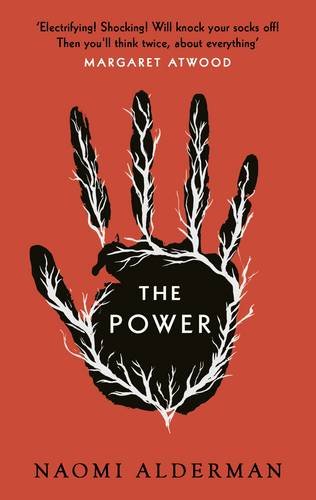
The combination of being the Bailey's prizewinner and Attwood's mentee made Naomi Alderman a popular choice for this month's book club, and in terms of discussion, the novel did not disappoint. With multiple narrative voices spanning three continents it was truly epic in scope.
We met in Billingshurst and it was one of the rare occasions when our meeting could take place in the garden. So keen were we to read more from this exciting author that she is included next time round, too. We are planning to read The Lessons alongside Donna Tartt's The Secret History.
Being so new, it was hard to find discussion questions online, so we made some up:
1. Why does 'the power' come in at fourteen/fifteen years of age?
2. What would happen if an author wrote a book about men having the power to electrocute to death, women?
3. Roxy witnesses the death of her mother under brutal circumstances at the outset of the story. How effective is the violence in this part of the narrative?
4. What do the letters between 'Neil' and Naomi, which bookend the text, add to the narrative construction of the novel?
5. “They have said to you that man rules over woman as Jesus rules over the Church. But I say unto you that woman rules over man as Mary guided her infant son, with kindness and with love.”How convincing is the feminisation of faith, and Allie/Eve as its spiritual leader?
6. What does Tunde's narrative perspective add?
7. What does Margot's character offer, as a fourth narrative strand?
8. Girls who can't or won't use their power get called names: gimp, flick, flat battery, pzit (“the sound of a woman trying to make a spark and failing”). What is the significance of this?
9. What do you think of the way the rape scenes were handled?
10. How is our present 'reality' illuminated through the novel, and what, ultimately is being suggested about human nature?
Discussion was so rich, however, that we had no need to use them!
